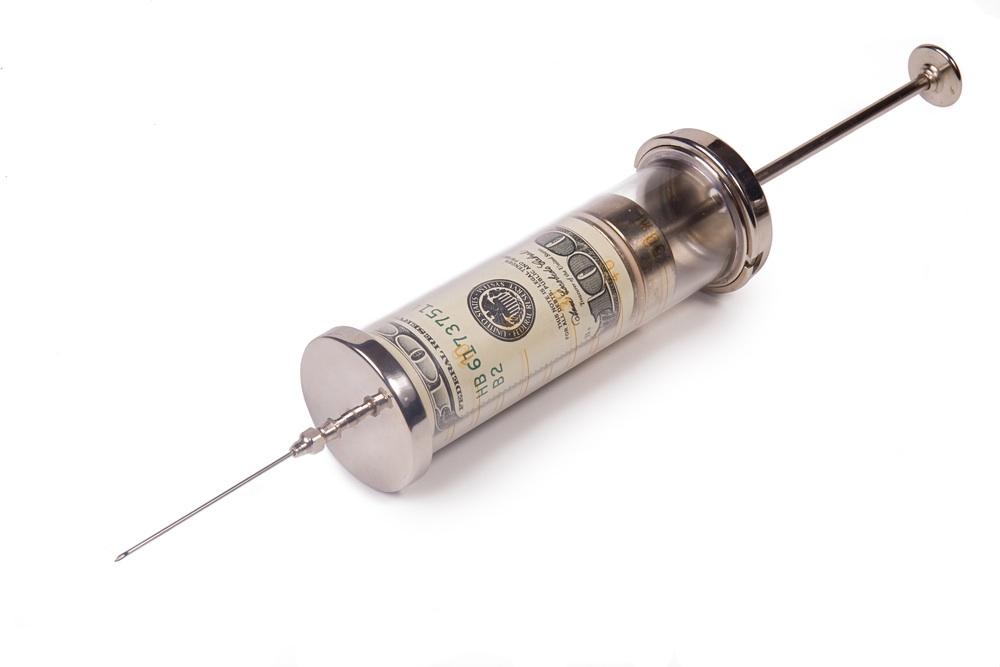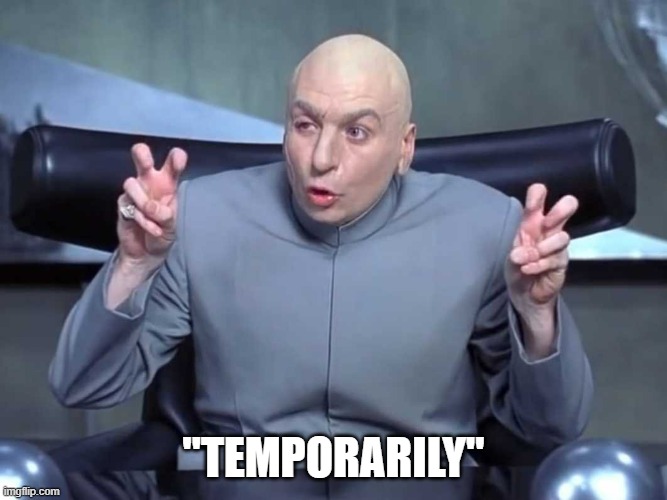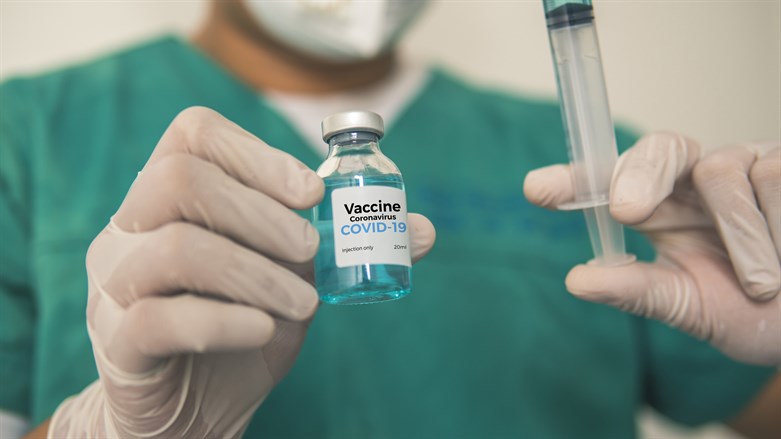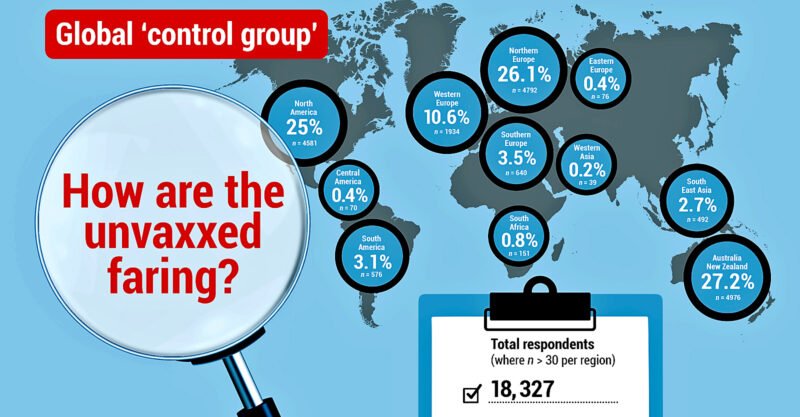U.K. Makes World’s Largest Donation To Find A Coronavirus Vaccine

The U.K. has announced a £210 million ($253 million) donation to speed up a coronavirus vaccine and the prime minister, Boris Johnson, has called on other world leaders to do the same.
There is an $8 billion shortfall in funding for coronavirus, Mark Henderson, director of communications at Wellcome Trust, told me this week. Developing a vaccine alone would cost $2 billion.
“To date, this is the largest single contribution by any country to the key international fund to find a coronavirus vaccine,” the Prime Minister’s office said in a statement. The pledge was announced following a virtual G20 meeting, the day before Johnson himself tested positive for COVID-19.
“My call to every G20 country and to governments around the world is to step up and help us defeat this virus,” says Boris Johnson, adding that if all G20 governments pledged $100 million the $2 billion would be instantly raised.
The call was echoed by Tedros Adhanom Ghebreyesus, director-general of the World Health Organization who told the G20, “You have come together to confront the defining health crisis of our time.”
However, since CEPI’s appeal for funds, few other countries have pledged donations. Instead, one of its largest donors has not been a country but a billionaire: Bill Gates gave $100 million to CEPI in 2017 and has since granted another $125 million towards efforts to developing both vaccines and therapeutics to fight COVID-19.
A Gates Foundation spokesperson said they were “working closely with CEPI to determine how best to support as the vaccine development programs move forward.”

The Jenner Institute at Oxford University is working on a vaccine against COVID-19
Coronavirus Vaccine Still Underfunded
“This is a full society press that we need,” says Henderson. “If we just leave it up to the pharmaceutical companies and normal market mechanisms it’s not going to happen quickly enough.”
Not only do pharmaceutical companies lack speed, but any ownership of a vaccine by a government or corporation could drive up costs for the drug, Henderson adds. This would make it barely affordable for the many countries whose health systems are already buckling under demand from coronavirus patients.
Instead we should take inspiration from Ebola. The origins of CEPI lie in the West African Ebola epidemic of 2013–2016 (CEPI was officially created in 2017), where a vaccine was developed “in double-quick time”, says Henderson, while maintaining affordability.
In its efforts to develop a vaccine against COVID-19, CEPI is backing eight different non-profit and profit groups, including the Jenner Institute at Oxford University and CureVac, the German pharmaceutical company that the U.S. government reportedly attempted to buy.
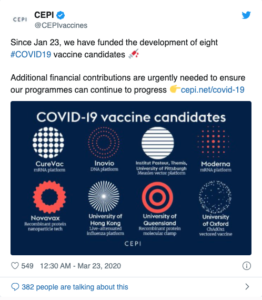
However, these efforts will stall if more funding is not supplied. CEPI has so far received less than a quarter of its $2 billion funding goal, over a month after it was announced. Already a vaccine is 12 to 18 months away says Richard Hatchett, CEO of CEPI. A delay in funding could make it longer.
Source: Forbes
Sometimes you just have to ask yourself: WHAT ARE THE CHANCES OF THAT ? – #watcot

